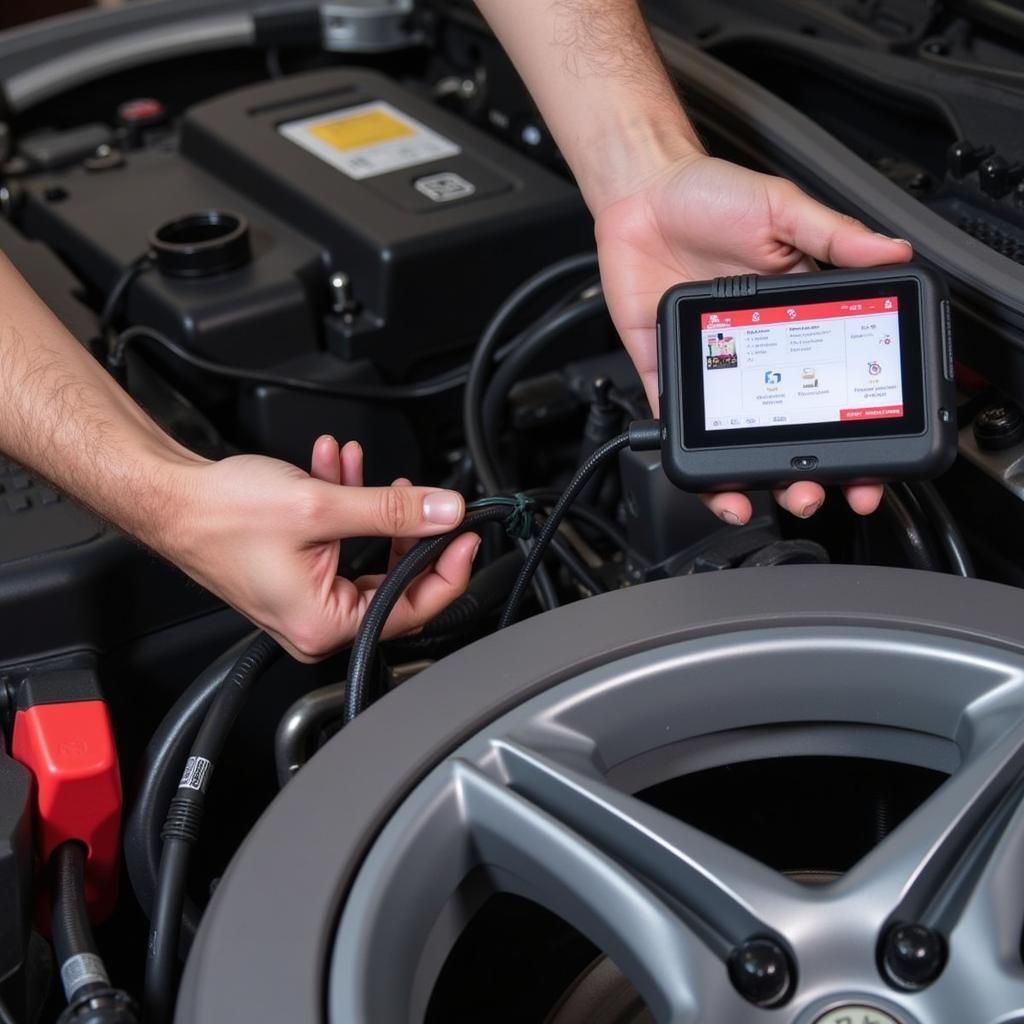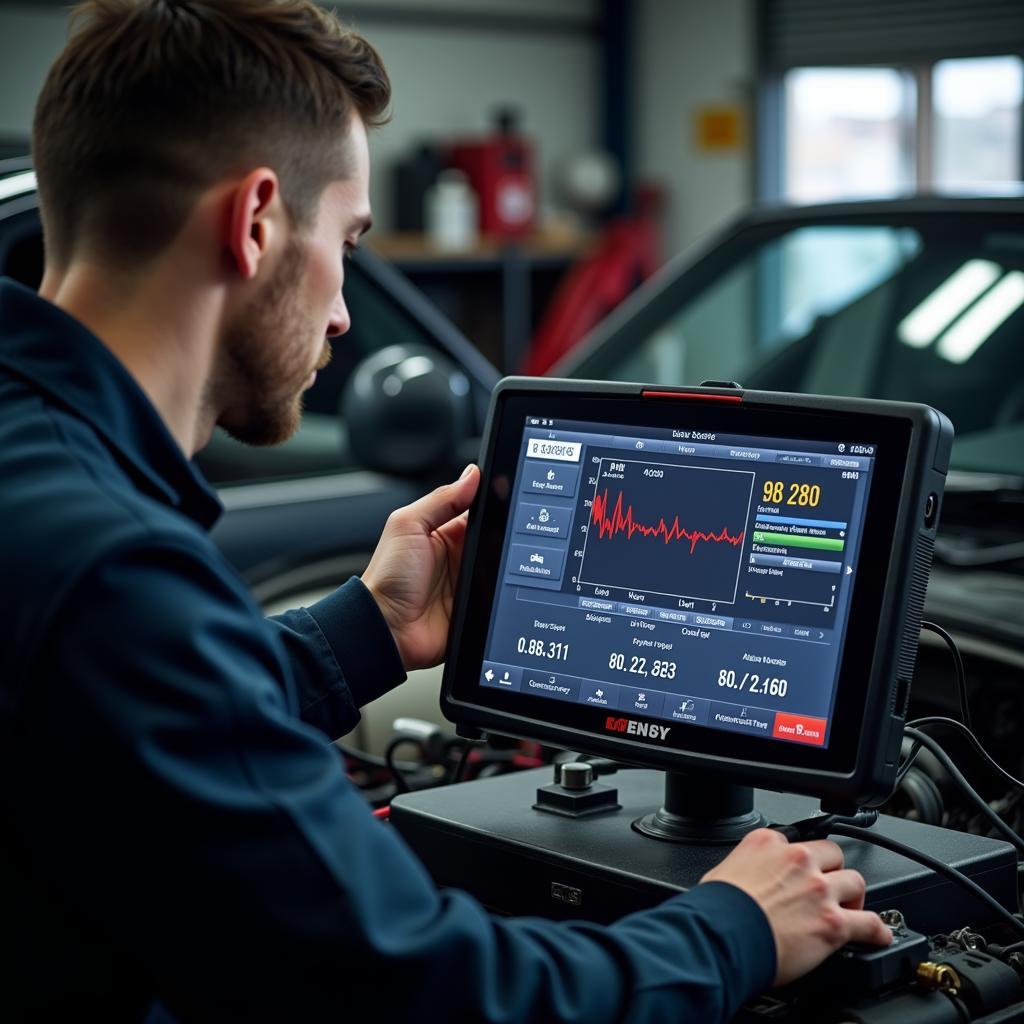In the world of automobiles, staying ahead of the curve with maintenance is crucial. Knowing what’s happening under the hood of your car can save you time, money, and unnecessary headaches. That’s where Diagnostic Tools For All Cars come into play. These powerful devices act as a window into your vehicle’s computer system, providing valuable insights into its health and performance. Whether you’re a seasoned mechanic or a car enthusiast, having the right diagnostic tools can empower you to take control of your vehicle’s maintenance.
Understanding the Importance of Diagnostic Tools
Modern vehicles are equipped with sophisticated onboard computer systems that monitor and control a wide range of functions. Diagnostic tools allow you to tap into this system, retrieving data that can help identify and diagnose issues before they become major problems.
Types of Diagnostic Tools for All Cars
The market offers a range of diagnostic tools catering to different needs and budgets. Let’s explore some of the most common types:
1. Code Readers
As the name suggests, code readers are basic diagnostic tools designed to read and clear diagnostic trouble codes (DTCs) stored in your car’s computer. When the check engine light illuminates, a code reader can reveal the source of the problem, giving you a starting point for further diagnosis.
2. OBD-II Scanners
Building upon the functionality of code readers, OBD-II scanners offer a more comprehensive suite of features. They can access live data streams from your car’s sensors, allowing you to monitor parameters like engine speed, coolant temperature, and oxygen sensor readings in real time.
 OBD-II scanner connected to a car’s OBD-II port
OBD-II scanner connected to a car’s OBD-II port
3. Professional-Grade Diagnostic Scan Tools
For advanced diagnostics and troubleshooting, professional-grade scan tools are indispensable. These sophisticated devices offer a wide array of features, including:
- Bi-directional control: This allows you to interact with your car’s systems, such as activating components for testing purposes.
- Module coding and programming: Professional tools enable you to reprogram certain modules within your car’s computer system, a task typically reserved for dealerships.
- Advanced diagnostics: These tools provide access to manufacturer-specific data and functions, enabling in-depth analysis of complex issues.
 Mechanic using a professional diagnostic tool to diagnose a car problem.
Mechanic using a professional diagnostic tool to diagnose a car problem.
Choosing the Right Diagnostic Tool for Your Needs
The best diagnostic tool for you depends on your individual requirements and expertise. Consider the following factors when making your decision:
- Your Budget: Diagnostic tools range in price from affordable code readers to expensive professional-grade systems.
- Your Level of Expertise: If you’re a DIY enthusiast, a code reader or OBD-II scanner may suffice. Professionals require more advanced tools.
- Your Vehicle’s Make and Model: Some diagnostic tools are designed for specific makes or models, while others offer broader compatibility.
Benefits of Using Diagnostic Tools for All Cars
Investing in a diagnostic tool can yield numerous benefits, including:
- Early Problem Detection: Identifying issues early can prevent costly repairs down the line.
- Cost Savings: Diagnosing problems yourself can save you money on mechanic fees.
- Improved Vehicle Performance: Regular diagnostics can help ensure your car is running at its best.
- Increased Resale Value: Well-maintained vehicles with a documented service history tend to have a higher resale value.
Conclusion
Diagnostic tools for all cars have become essential for vehicle owners and professionals alike. From basic code readers to advanced professional systems, these tools provide invaluable insights into your car’s health, enabling you to make informed decisions about maintenance and repairs. By investing in the right diagnostic tool, you can take control of your vehicle’s well-being and keep it running smoothly for years to come.
FAQs
1. Do I need a diagnostic tool if my car doesn’t have a check engine light on?
Even without a warning light, a diagnostic tool can reveal potential issues and provide valuable information about your car’s overall health.
2. Can I use a diagnostic tool on any car?
Most diagnostic tools are compatible with a wide range of vehicles, but it’s important to check compatibility with your specific make and model before purchasing.
3. Are diagnostic tools difficult to use?
Many diagnostic tools are user-friendly, with intuitive interfaces and clear instructions. However, some professional-grade tools may require a deeper understanding of automotive systems.
4. Can I fix all car problems with a diagnostic tool?
While diagnostic tools can identify issues, they don’t necessarily provide the solutions. Some repairs may require specialized knowledge or equipment.
5. Where can I purchase diagnostic tools for all cars?
Diagnostic tools are available online, at auto parts stores, and from specialized retailers.
Need Assistance?
For expert advice on car diagnostic tools and solutions tailored to your needs, don’t hesitate to contact our dedicated team:
WhatsApp: +1(641)206-8880
Email: [email protected]
We’re available 24/7 to assist you!

Leave a Reply